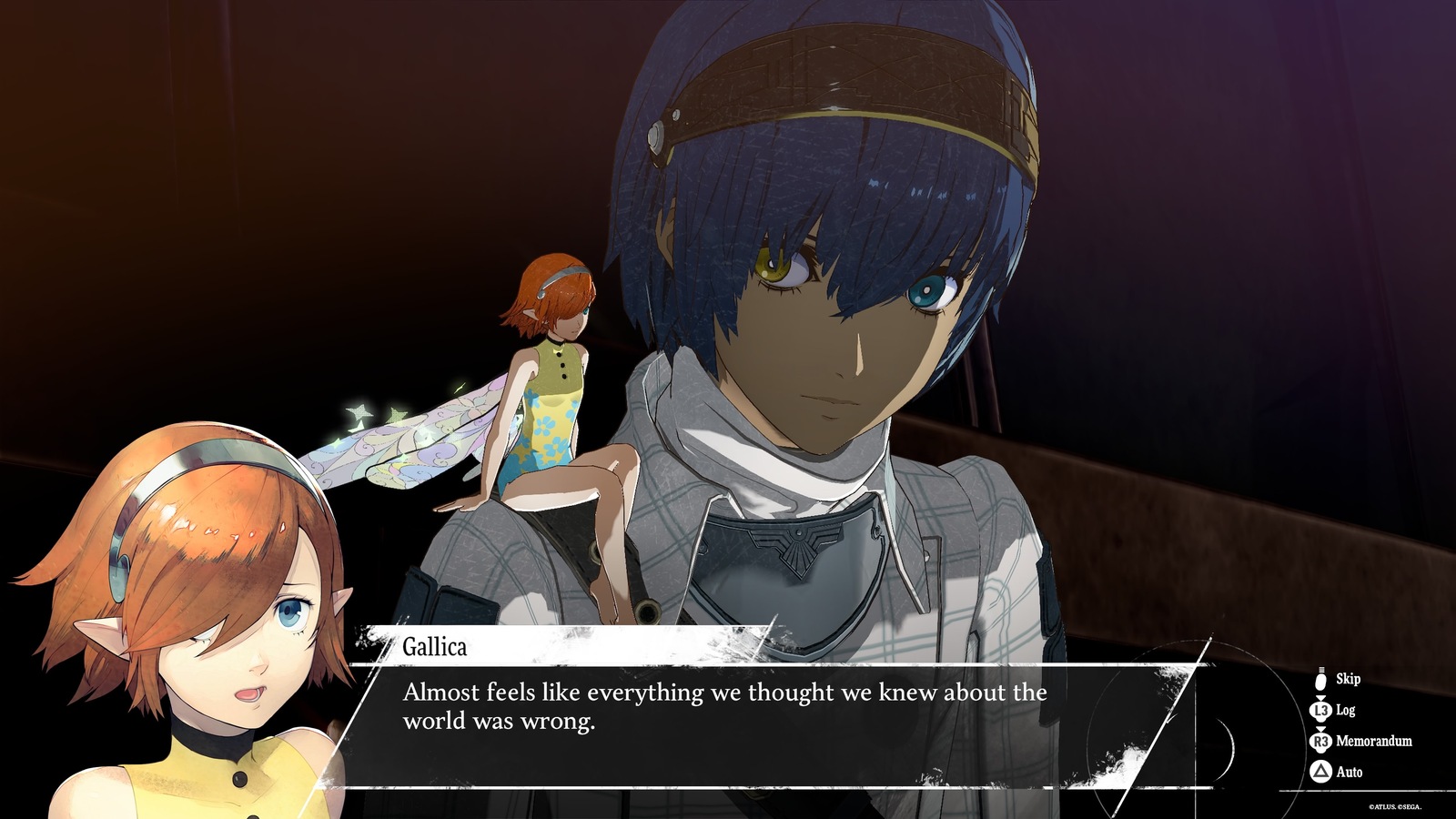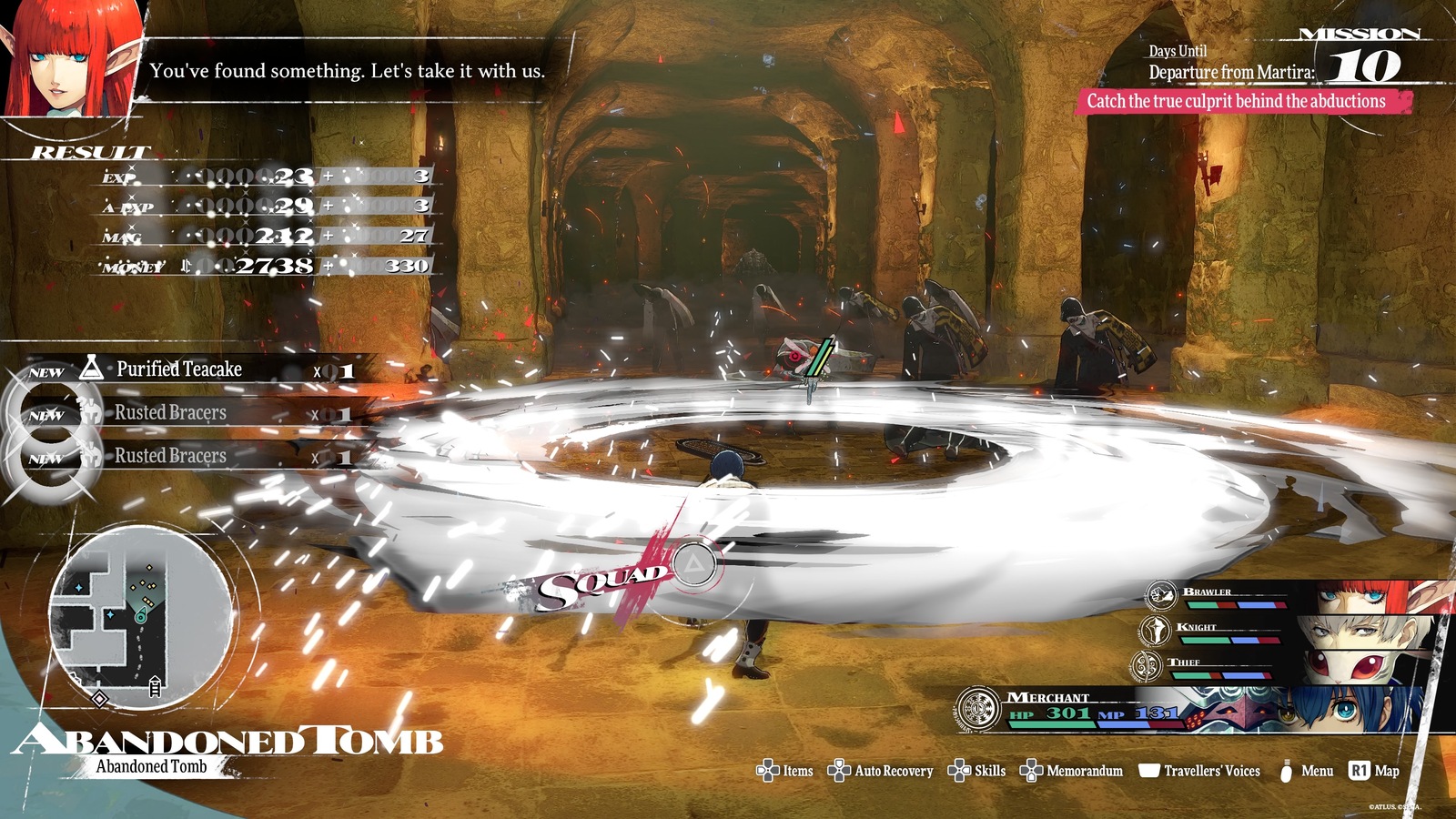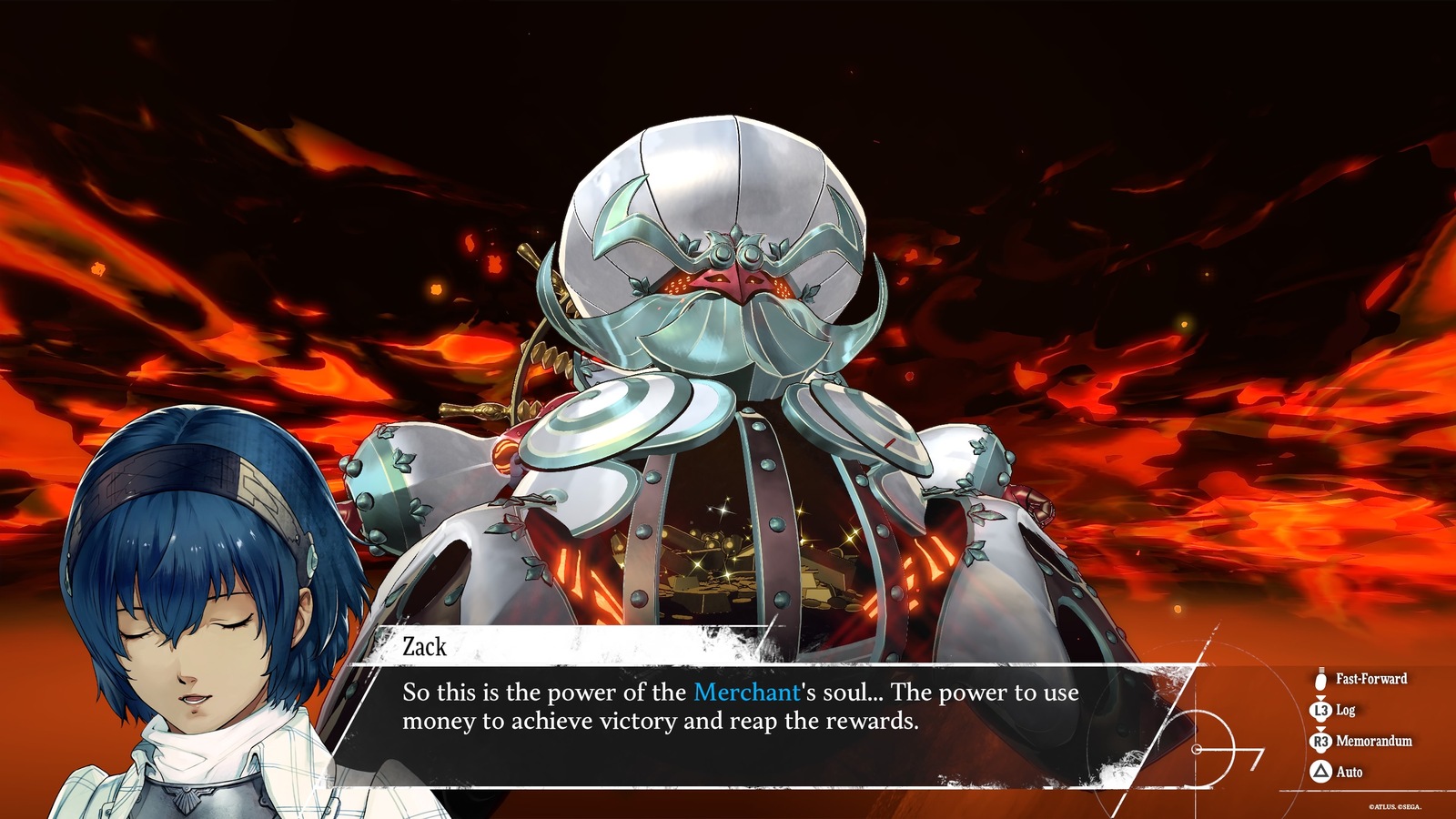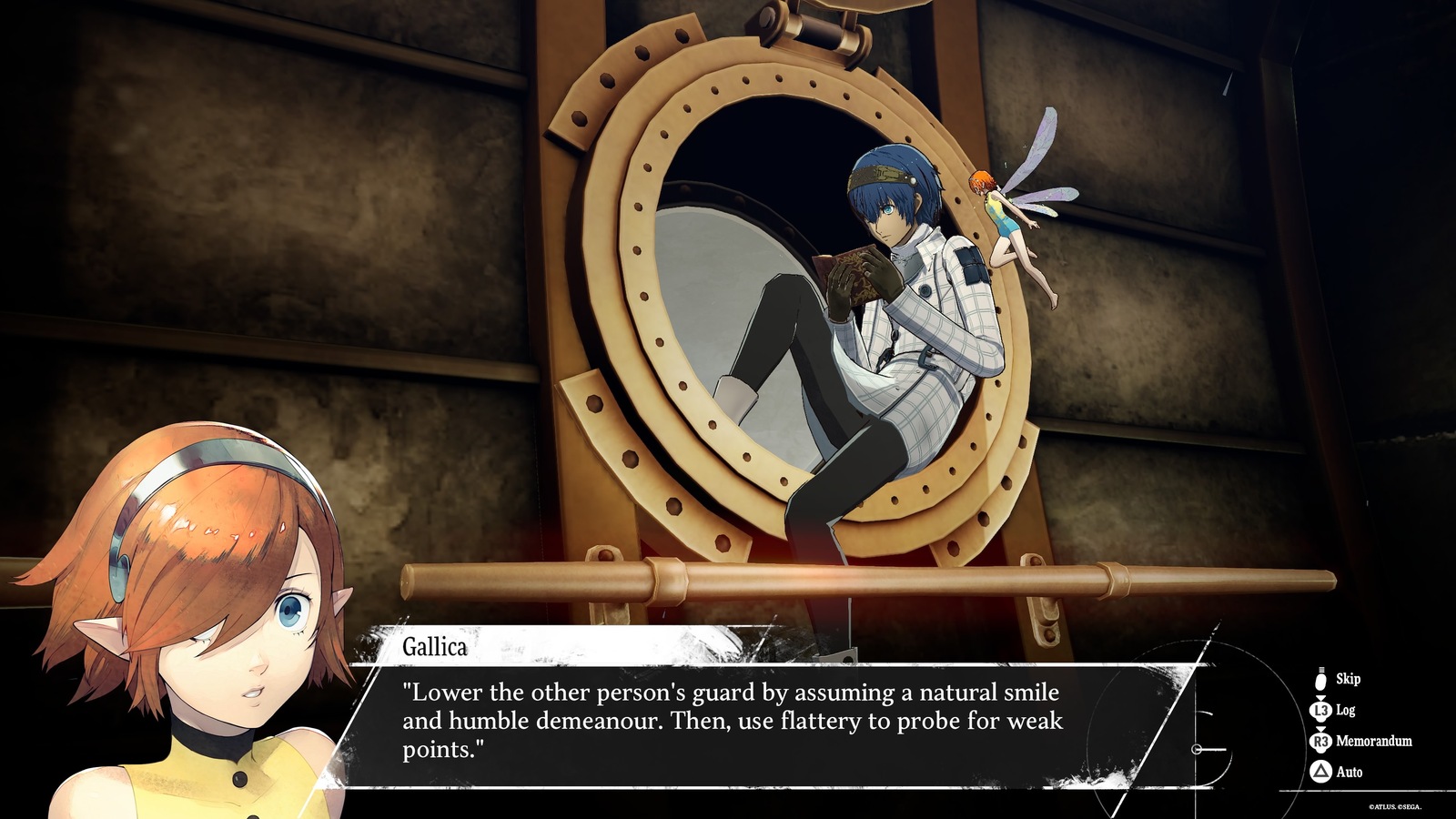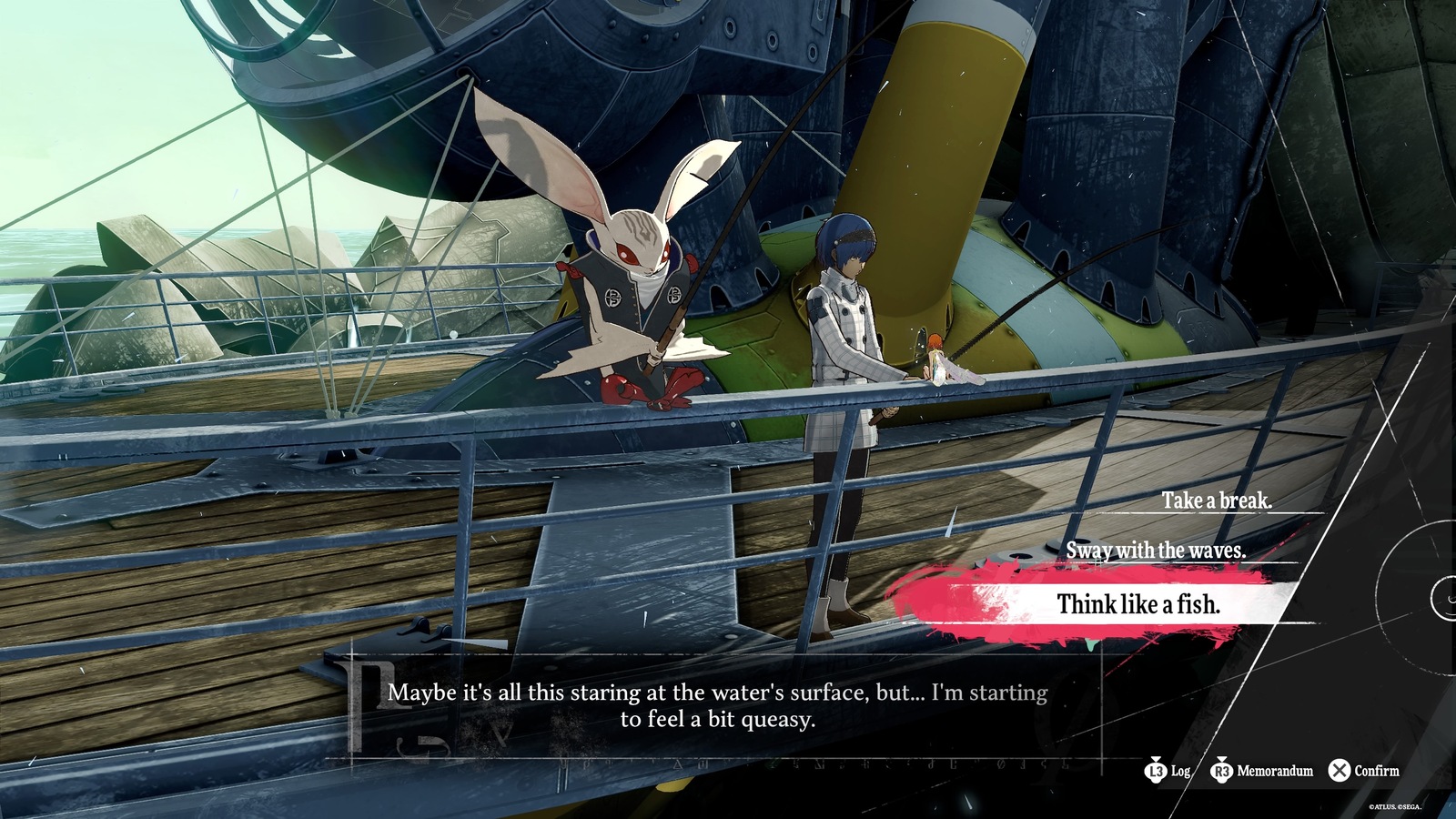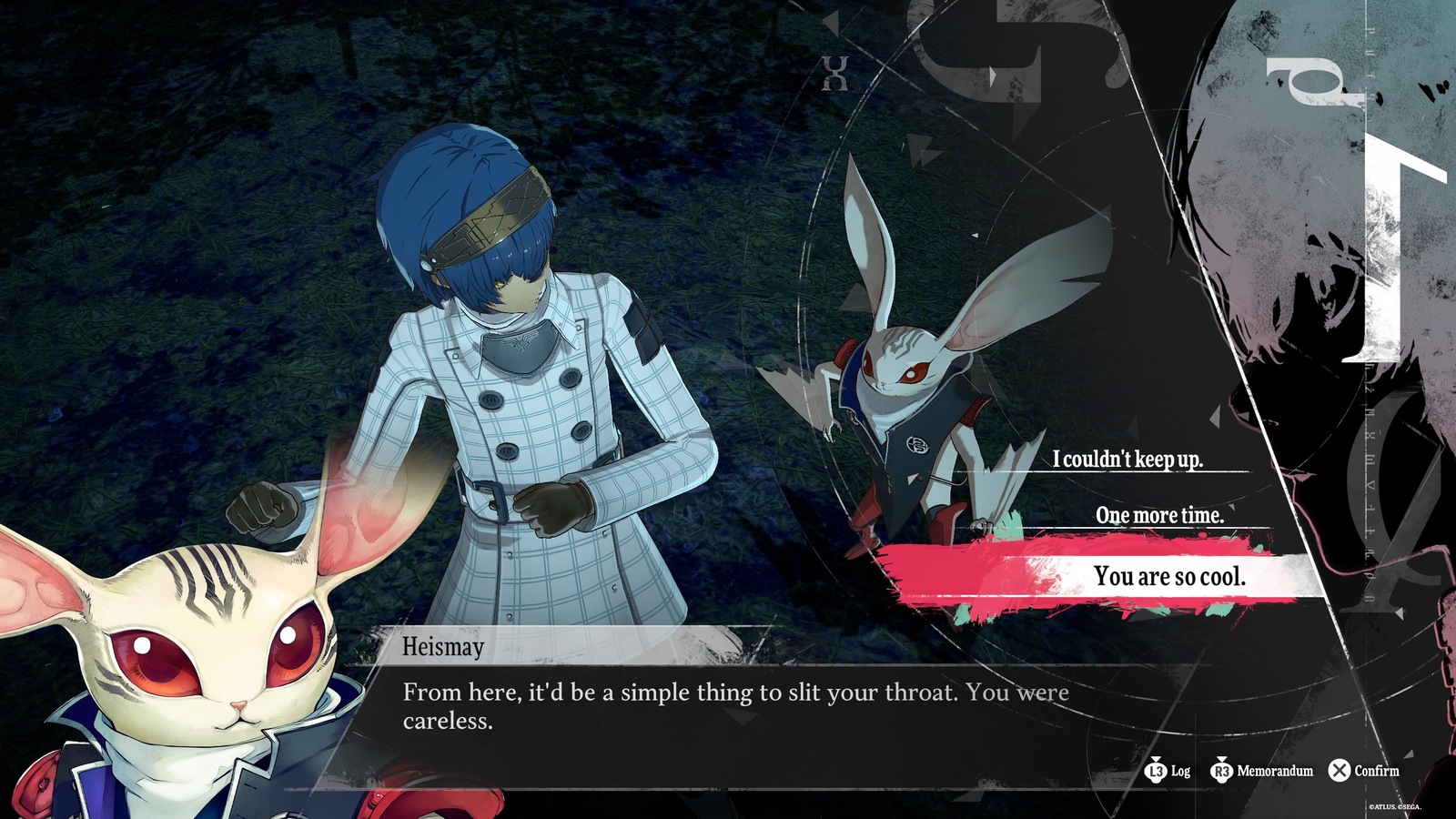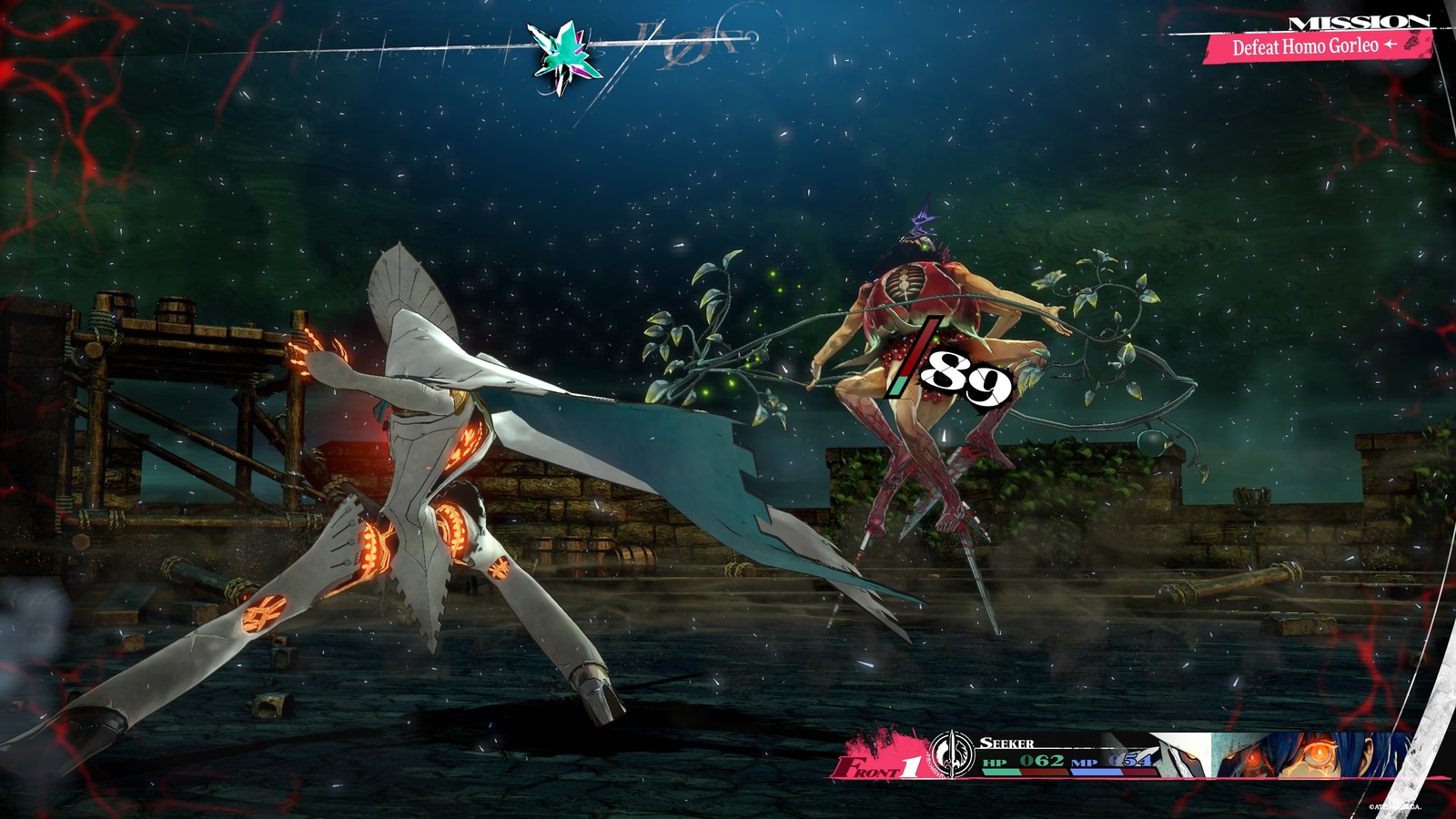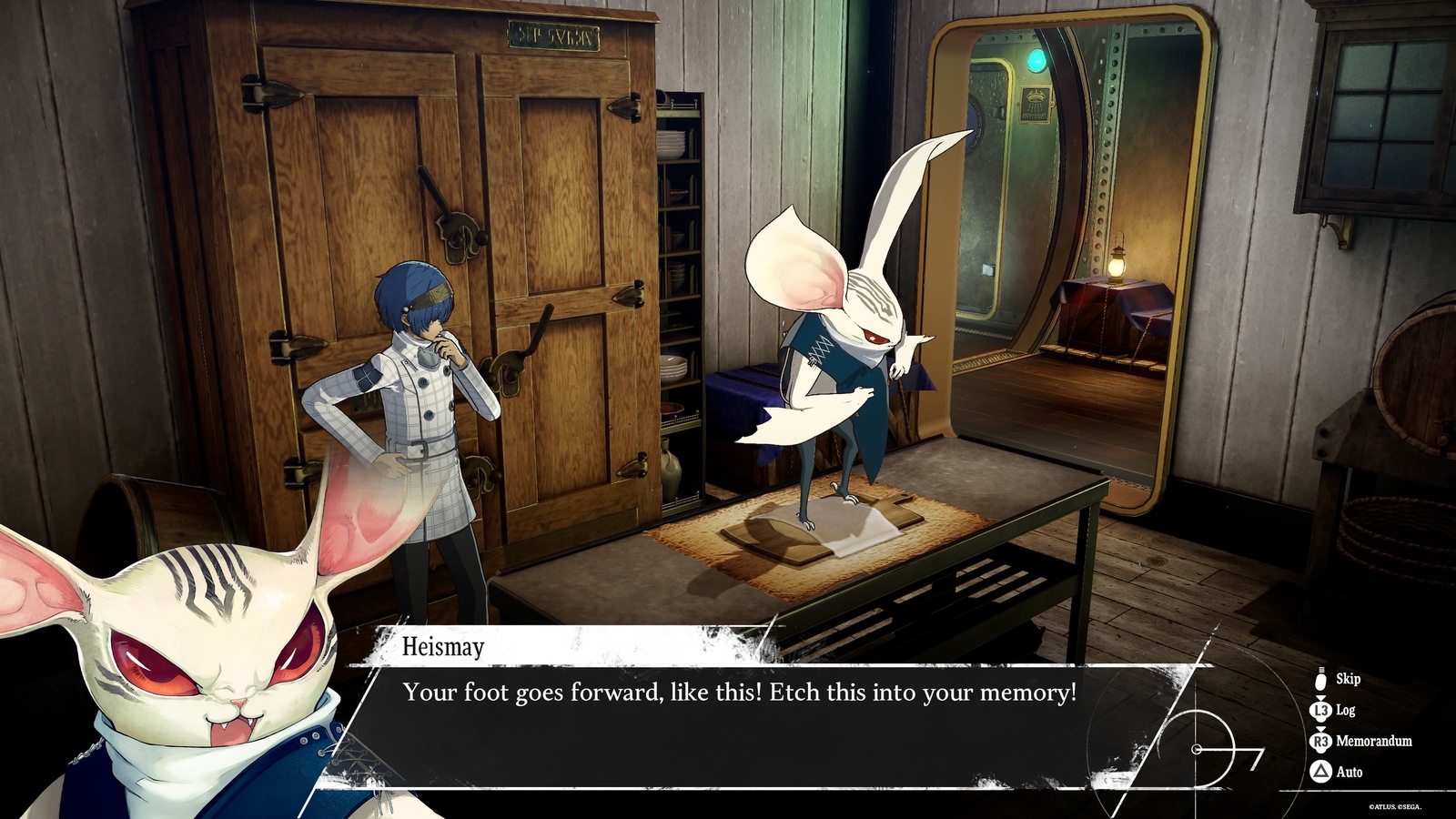Do you believe in the power of fiction? That stories can change not just hearts and minds, but the world itself? Everyone has dreams, but are these, too, destined to be mere fantasy? These are the questions Metaphor: ReFantazio asks, the latest title from ATLUS, creators of the Shin Megami Tensei and Persona series. It’s been a long road to this point, but Metaphor represents the culmination of everything ATLUS has learned over 35 years. Editors David Flynn and Jack Zustiak dove head first into the fantasy and, after dozens of hours, finally realized the answers to those questions.
Jack:
Born of fantastical imaginations yet reflective of the reality that shaped them, Metaphor: ReFantazio culminates the strengths of its creators and fiction itself. Atlus as a game developer specializes in dream-like RPGs where player agency and guided storytelling collide. Metaphor embraces that legacy and executes it on a grand scale; it looks like a dream, feels like a dream, and plays like a dream due to lessons learned from the past. Yet that understates the power of Metaphor, or really any kind of creative work. Past, present, and future all intertwine here to create a game that demands a lot of the player’s life in the short-term yet offers much in the long term.
The scenario of Metaphor makes these connections clear; you play as a wanderer caught up in the middle of a royal election. Metaphor uses this premise to explore the nature of politics, how societies operate, and what it means to lead people into the future. These would be tough topics to tackle meaningfully in any format, yet Metaphor explores them in thoughtful and relevant ways. The writing readily acknowledges the clash between reality and ideals, making for an interesting kind of tension as the story goes on. I couldn’t help but connect Metaphor’s themes to my own pocket of American society, yet that’s underselling the scope of its storytelling.
Metaphor’s narrative applies just as much to past and future societies as it does my own. If you ever take some time to read old newspapers or literature, they will reveal that politics and people across time share more in common than one might think. Many of society’s struggles are universal. Rather than getting caught up in the riff-raff of our times, Metaphor rises above it in a way that directly appeals to the human spirit. Between its strong cast, twist-filled plot, and mixture of traditional fantasy with modern design touches, Metaphor often comes across like the kind of poignant dream that sticks in your head long after waking up.
Dreams push you along with a natural kind of momentum, and Metaphor follows suit. Every aspect of Metaphor feeds into itself in a way that compels you to stick with it. Metaphor runs on a calendar system that typically leaves each day’s activities to the player. Virtually every activity pushes time forward. For example, you may spend one day crawling through dungeons and another building up your relationship with comrades. These differing activities work together – spending time with friends might give you new tools for battles, while clearing a dungeon can open up new relationships.
Choice serves as the vital link in the chain that ties you to the game. The strength of the calendar system lies in how it gives the player a sense of ownership over events. When I commit to spending time with a character in the game, I end up wanting to see their story through to the end. If I choose to go dungeon crawling, I need to clear out every nook and cranny of treasure. After all, the excursion costs a whole day! Each choice immerses you more deeply into the game so that you look forward to making the next choice and ultimately seeing how it all plays out in the end.
If you’ve played this team’s Persona games, the calendar system should sound familiar. Whether it’s the calendar system, vaguely familiar plot beats, or even aspects of the battle system, Metaphor uses a bit of everything that makes Atlus games (not just Persona!) great. Using the familiar as a launching pad for expansion acts as Metaphor’s guiding principle.
One look at the game concept makes that obvious: Metaphor mixes traditional fantasy staples with Atlus design sense, both in its grotesque monsters and sleek character designs. If you don’t know the worlds of Shin Megami Tensei, you probably at least understand what knights and dragons are. Whether you’re familiar with one or both, the strong art direction channels the best of both worlds and mixes them together, distinguishing Metaphor from a typical fantasy world and its Atlus-developed brethren alike. Composer Shoji Meguro’s epic orchestral music and chants help, too.
Yet Metaphor doesn’t thoughtlessly reuse so much as it meaningfully refines and expands. Take the calendar system, which has been translated into a much grander world than it typically exists in. Persona games generally limit themselves to a main setting, while Metaphor takes the show on the road. Each arc of the game takes place in a different city with its own surrounding area of smaller towns and dungeons.
The greater scale of the game creates interesting gameplay scenarios where you need to plan your trips to the outskirts. Conservative players may opt for shorter trips at the cost of eating up more days, while aggressive players can try to fit as many activities in one run as they can. These journeys add a compelling element of long-term commitment that simultaneously makes individual choices weightier while also effectively conveying the scope of Metaphor’s world. One of the best stretches of the game involves planning out your journey to various dungeons while being assaulted by monsters and rival candidates for the throne. Through scenarios like this, Metaphor sells a true sense of adventure, where you’re journeying to the unknown and anything can happen.
In other aspects of the game, like the battle system, pretty much anything can happen. Battles can take multiple forms in Metaphor: an action-based hack-and-slash game about avoiding enemies and a turn-based battler about exploiting weaknesses. Metaphor leans far more on the latter, but I appreciate aspects of both.
All of the action mechanics keep things simple – you’ve got an attack and roll. The goal is to whack enemies before they whack you. Depending on your current level, depleting an enemy’s health either kills them outright or stuns them to enter turn-based combat with an advantage. If the enemy hits you, they get the advantage.
As a game function, the real-time battling gets the job done, but it truly excels in conveying a sense of danger and scale. While many enemies sit around waiting to be snuck up on, some will surprise you or pop out of places you don’t expect. These encounters add a sense that danger can lurk around any corner so you’re always staying on your toes. On the opposite end of things, once you reach a high enough level, the enemies act as a nice measuring post for your progress. Few things feel better than returning to a dungeon full of previously hard-fought battles only to find that traversing it has become a pure action game.
That said, all true battles are fought in a turn-based format, just like in real life. The core systems in place will look familiar to any Atlus fan – essentially the battle mechanics boil down to mastering a chart of different types of attacks and elements. Virtually every enemy maintains some type of weakness, so knowledge serves as the greatest source of power in this game.
How Metaphor expands on the basic framework of Atlus RPGs demonstrates its thoughtful expansions better than anything else. Essentially, Metaphor gives the player a cavalcade of tools to work with, which you can access and change at your whim. No dice rolling for the right skills or guessing to recruit the right allies required. Metaphor proves shockingly straightforward and fair, which it uses to challenge players to put its many possible pieces together into an effective solution.
Archetypes lead the charge in providing options. Every character can access what amounts to a specific class that provides them with different stat boosts and skills. Mages focus on magic and elemental skills, while a Warrior will focus on physical slash attacks, for example. Simple enough of a concept, but two things make this system interesting. First, every party member can access every available Archetype from the get-go. Second, skills learned from one Archetype can be equipped to another one.
While mixing and matching can be fun on its own, the challenge of the game ensures you need to do so thoughtfully. Metaphor isn’t a brutal game, but that won’t stop it from being brutal anyway. The weakness system creates opportunities for the tides of battle to turn quickly, so you always need to be prepared for both the best and worst case scenarios. Adversity breeds creativity, however, and I found it immensely satisfying to come up with something fun. From builds that prioritize dodging attacks to giving the term “buying power” a whole new meaning by turning your money into attacks, the Archetypes offer a lot of cool ways to play the game.
In general, I prefer this more straightforward approach to problem-solving. It highlights the strengths of the basic Atlus RPG battle system without losing the core challenge. Not everything perfectly preserves the cruelty that longtime fans might expect from these games – the autosave and battle retry button poke a lot of the teeth out of getting ambushed – but the game still puts you through your paces.
Most importantly, Metaphor provides an addicting playground to experiment in. Battles move quickly with snappy animations and UI, so jumping into a fight to try out a new strategy never bogs the pace down. Between the sound effects and the stylish presentation, Atlus have refined the act of pressing buttons to select things from a menu into an artform that few can match. Battling in Metaphor keeps you coming back on both an intellectual and visceral level.
Just about everything in Metaphor works like a dream. From the story to the game structure to the battle design, I loved everything about it. It’s a dream game in every sense. I am physically capable of putting over 50 hours into very few games over the course of a week, and Metaphor made it easy. Anything bad I could say about the game would just come across as petty.
…I’m not above being petty. Here is my airing of grievances about Metaphor:
While Metaphor is a satisfyingly long game, some parts of it feel unnaturally trimmed down. The first main dungeon of the game gave me the impression that they were all going to be lengthy tests of dungeon crawling, but that’s not really the case. I can see the argument that the game works better this way, and I do actually prefer Metaphor’s approach over something like Persona 5, but it is strange. If things like the main dungeons were going to get trimmed, the team didn’t pull it off in a way that felt seamless.
When the UI needs to resort to lists of text, like for picking out Archetype skills or for information you can buy from brokers, things tend to get messy and disorganized. You can sort out the skills in various grouping menus, but even those get crowded once you’ve mastered a lot of Archetypes. I don’t know if there’s a perfect solution to this problem other than visually reworking these types of menus to be more distinct or adding more ways to search for what you’re looking for, but even those solutions may not be perfect.
In general, I wish the game made it somewhat easier to keep track of its more tertiary elements, like where items are sold. The info broker curbs some of the pain here, but not all of it. Some specialty shops can be tough to track down because they lack a clear label, which resulted in me doing a lot of running around in the name of fishing and cooking. Maybe that’s a personal problem.
I understand if these problems may be catastrophic for some, but for me they aren’t enough to turn this dream into a nightmare. Metaphor is exactly the kind of game I hoped it would be: one that offers a smart battle system, a meaningful story, and a world worth investing in, much like our own.
David:
Metaphor: ReFantazio is the best game ATLUS has ever made. Full stop. Where Persona stumbled in pacing and themes or where Shin Megami Tensei fails to be approachable for newer players, Metaphor strides forward with confidence. It takes ideas from throughout ATLUS’ history, and the history of RPGs in general, and finds ways to improve on them or follow them through in a new way. This is the quality of game you get when you have a team of artists working together for a long time and each putting their all into the project.
King Hythlodeus the fifth, of the United Kingdom of Euchronia, has been murdered. His sole heir, a fragile young boy, lies on death’s doorstep in a hidden sanctuary, all while hideous creatures called humans ravage the land. However, thanks to a spell cast by the late king, a tournament for the throne has begun. Whoever can win the support of the people by the Day of the Hero will become the land’s next king. Now, anyone has a chance to change the course of history, from the lowly paripus to the haughtiest clemar and even the reviled elda tribe. But, can one person really change the world on their own?
Metaphor is not subtle about its world being a reflection of our own, I mean, it’s called METAPHOR. Still, having an explicit message works to the game’s benefit, with the finale really following through on the themes in a satisfying and poignant way. The story overall is a highlight of the experience, with delightful characters, plenty of twists and turns, and some great foreshadowing. The core party is absolutely wonderful, and I loved seeing them all interact throughout the entire story. The final party member does come in very late into the adventure, but as a character he’s around a lot longer. So while they might be a bit lower in level than the rest of the party, they still have a satisfying arc.
The game combines story and gameplay mainly through the social systems, basically ripped straight out of Persona. The protagonist can form a relationship with certain characters he meets along the way, and they become his Followers. By spending time with followers, you can increase their rank up to level 8, with each rank granting bonuses to the game overall and the Archetype they hold. For example, Catherina, heritor of the Brawler Archetype, will allow you to see where chests are on the map in dungeons and allow anyone using the Brawler line to inherit up to four skills from other Archetypes.
Unlike Persona, however, you don’t need to worry about saying the right thing to get enough points to reach the next rank. Certain dialogue options will grant a currency called MAG, but every time you hang out with a Follower their rank is guaranteed to go up. This allows you to worry less about optimization and lets you really engage with these characters. There aren’t as many followers as there are social links in a typical Persona game, but this lets Metaphor cut the fat so there’s not a dud in the bunch.
Managing your time is key, as you have to level up your followers, keep your social stats up, and tackle dungeons to get weapons, gear, and level up your party members and their Archetypes. Social stats are called Royal Virtues here, and include courage, wisdom, tolerance, eloquence, and imagination. You increase these by spending time on appropriate activities, such as reading books, hearing stories from citizens, and jumping off of cliffs. It’ll take most of the game to get every virtue to the maximum of rank 5, so you really have to keep on top of them if you also want to max out every follower, because certain ranks will be gated by Royal Virtue checks.
This all feeds into the battle system. You can have up to four party members participate in battle at once, though you can swap them out freely mid-fight once you have at least five. Each party member equips an Archetype, which will determine their abilities in battle. Archetypes essentially work as a job system or classes in Dungeons & Dragons, with roles such as the Healer, Warrior, or Gunner. Archetypes not only determine a character’s resistances and weaknesses, but also grant them stat bonuses appropriate to their role in battle – the Mage will boost magic greatly while the Seeker gives smaller bonuses to all stats. Each of these can be leveled up to 20, at which point they will grant a character permanent stat points and allow them to unlock more powerful Archetypes.
The Archetype system really allows you to customize your team however you like. While Strohl initially leans towards physical attacks, I set him up as the main healer for most of the game. You still want to play to each character’s strengths, but allowing them to diversify and inherit skills or passives will only make them even stronger in the end. Figuring out combinations to really crush a tough boss under your heel is incredibly fun and satisfying. Sometimes you need a wide range of abilities, while other times you just need a full team of Brawlers to punch an enemy’s lights out.
Make no mistake though, optimizing for every fight is less of an option and more of a necessity. Metaphor is a difficult game, even on normal. ReFantazio uses a variation of the punishing Press Turn battle system seen in Shin Megami Tensei games. Each turn begins with up to four action icons at the top of the screen, and a party member taking an action will use up one of these icons. Your turn will continue, with characters acting according to turn order, until you run out of icons.
Exploiting an enemy’s weakness or getting a critical hit will only use half of an icon, allowing you to essentially double your party’s actions in a single turn if you’re smart about it. As the saying goes, easy come easy go, however, and missing an attack or having it blocked will use up two icons. If an attack is reflected or countered, your entire turn is forfeit. The same rules apply to enemies, so you can use these rules to your advantage as well. A character like Heismay (AKA team dad) has fairly middling attack stats, but a super high dodge chance, so he may warrant a spot on your team just to remove enemy actions.
Metaphor adds some action combat on top of the traditional turn-based battles. Before engaging in what the game refers to as a Squad Battle, you can attack enemies on the field and stagger them to gain advantage, but if they hit the protagonist a single time battle will start with the enemy having advantage. Furthermore, once you’re at least three levels above an enemy, you no longer have to engage in a Squad Battle to defeat them, you can take them out on the field and earn the rewards right then and there. Action combat isn’t a core focus of the game like it is in Trails Through Daybreak, but it’s a lot of fun and cuts down on grinding exponentially. It feels great going into a new dungeon and discovering you can just blast through it. I especially love how the protagonist’s combo and fighting style will change depending on what archetype he has equipped.
Of course, all that action is accompanied by some fantastic tunes from the ATLUS Sound Team and Shoji Meguro. We’re used to hearing more modern music from them, so a more medieval soundtrack is a treat to listen to. A lot of the songs still have lyrics, but they’re written in Esperanto, a language created in 1887, and sung in a ye olde rap music style. The battle theme is very catchy, but I find the Gauntlet Runner songs get stuck in my head most often for their bombastic drums and wistful violins.
Lastly, let’s talk about the visuals. Character models use a typical anime style, with each of the nine tribes of the world looking great. On close ups you can see some flashing paint strokes to mimic the painterly theme of the menus. As is ATLUS tradition at this point, said menus are all incredible and a treat to look at, I especially love the more detailed and somewhat realistic character portraits, though these aren’t lip synched, and the Archetype menu using the vitruvian man as inspiration. The game takes a lot of inspiration from real world sources, in fact, such as the world map being modeled after Sir Thomas More’s “The Utopia”, which the protagonist carries around albeit a version drawing from our modern world. There are also quite a few anime cutscenes scattered throughout the adventure, which is a great touch and keeps events always feeling important.
The only real complaint I have about Metaphor are the environment textures. They follow a more realistic style and can sometimes look muddy or low quality. It’s not super distracting, but definitely noticeable when you’re just walking around towns. I played the game on PC and Steam Deck, both of which ran great, and over 107 hours I never really got used to that look.

